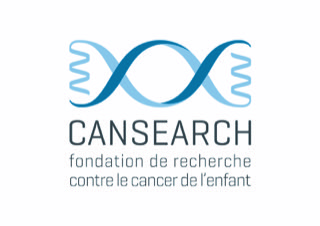m) GECCOS – BISKIDS Project
Genetic Risks of Complications in Childhood Cancers in Switzerland (GECCOS) – Germinal DNA Biobank for Cancer and Blood Disorders in Children (BISKIDS)
Introduction:
The GECCOS project (Genetic risks for Childhood Cancer Complications in Switzerland) aims to identify genetic variants that predispose children to develop complications after cancer treatment. Indeed, a wide range of acute and chronic complications are associated with cancer and its treatments. However, there are significant inter-individual differences in the type and severity of complications associated with similar anticancer treatments. Genetic variations influence some complications and may play an important role in many of these differences.
The GECCOS project focuses on complications in childhood cancer survivors in Switzerland (CCS), for which genetic predictors have not yet been fully identified, namely: 1) pulmonary dysfunction, associated with various chemotherapy and radiotherapy treatments at the chest level, leading to higher hospitalization rates and increased mortality; 2) hearing loss due to platinum chemotherapy, even mild, affects the long-term health and quality of life of CCS; 3) second primary cancers, associated with various chemotherapies and exposure to radiotherapy, contributing to significant excess mortality and morbidity; 4) cardiac complications, which are one of the most common causes of morbidity in survivors and can be improved if detected early and treated.
This study aims, firstly, to identify cancer patients and survivors at increased risk for these complications based on personal and clinical criteria (such as treatment exposure or specific primary cancer diagnosis), and then to conduct genotype-phenotype association studies to identify genetic variants associated with these complications. Identifying genetic markers for each cancer survivor will thus allow for a better estimation of the risk of developing complications and personalized management of treatment and follow-up. We will have high-quality phenotypic and genotypic data on a well-described Swiss population. Such an analysis has not yet been conducted nationally in Switzerland.
Method:
Clinical data from Swiss children with cancer will be obtained from the Institute of Social and Preventive Medicine in Bern (ISPM), particularly in the context of various follow-up projects in hospitals of the Swiss Pediatric Oncology Group, which have been collecting data from patients diagnosed since January 1976, but also from other health facilities conducting functional outcome testing (e.g., hearing tests by hearing aid companies). Germinal DNA samples and genetic data from the same patients will be obtained from the Geneva Biobank of Pediatric Hematology and Oncology (BaHOP) through the associated BISKIDS project (germinal DNA biobank for cancer and blood disorders in children). Association studies between genetic variants and clinically relevant data will be conducted on candidate genes based on scientific hypotheses or on a hypothesis-free approach at the exome or whole-genome scale. All significant associations will be replicated in independent cohorts.
Results:
So far, BISKIDS has collected more than 600 samples since the beginning of national germinal DNA collection in September 2019. A secure interface has been set up to link samples and clinical data and will be integrated into the national BioLink metabank project of the Swiss National Science Foundation (SNSF). Germinal DNA collection is ongoing for patients at risk of pulmonary and cardiac disorders throughout Switzerland. A project aimed at improving the identification of patients at risk of second cancers was approved in 2023 and is currently being prepared.
Analyses are being conducted in collaboration with ISPM and the Genome Center Geneva. The entire clinical data of more than 200 patients with hearing loss has been prepared to perform an initial genotype-phenotype analysis using a candidate gene approach in these patients. Furthermore, as part of an international collaboration with France, we have contributed to the sequencing of 12 patients, including 6 with a second thyroid cancer. These data are currently being analyzed.
